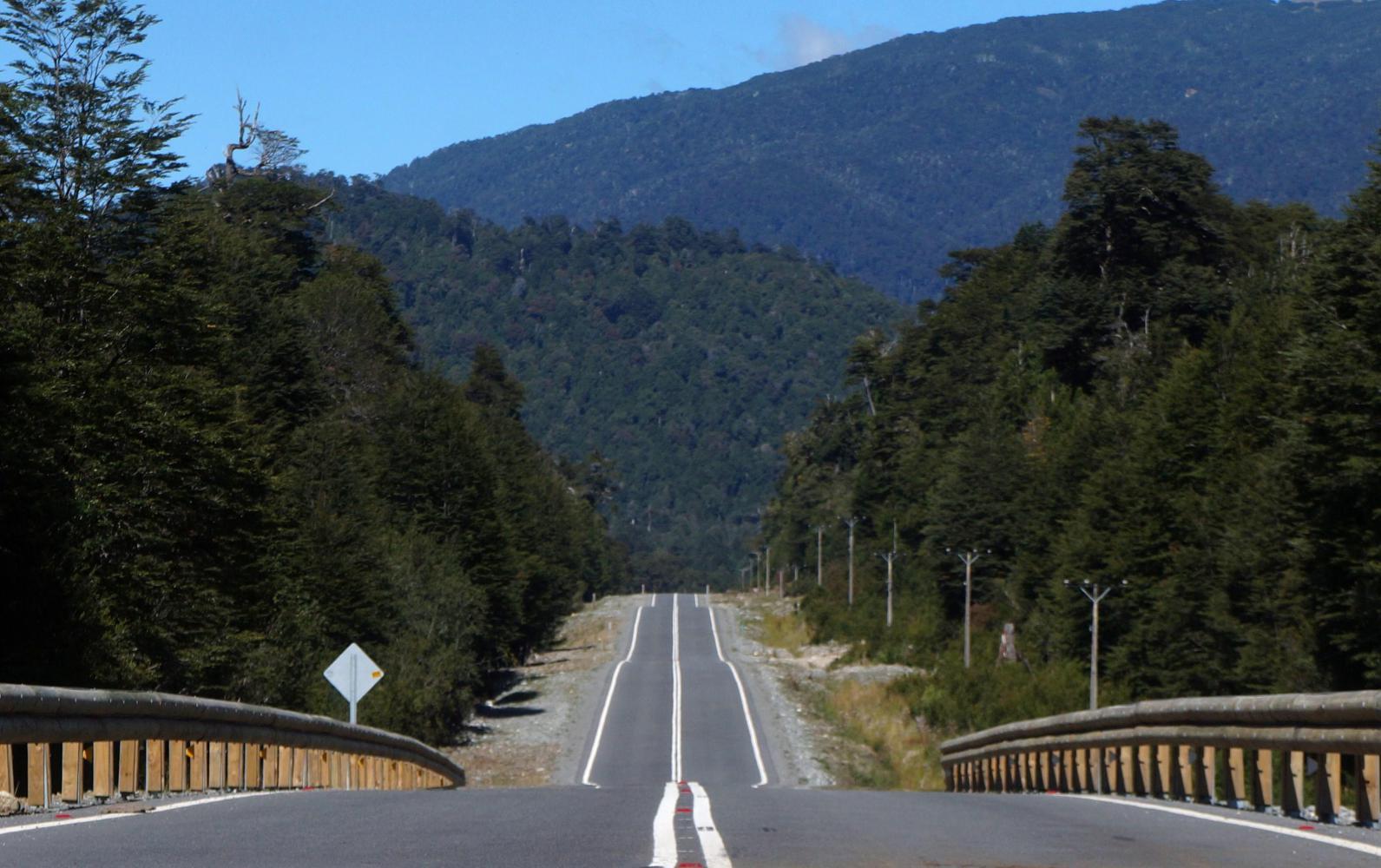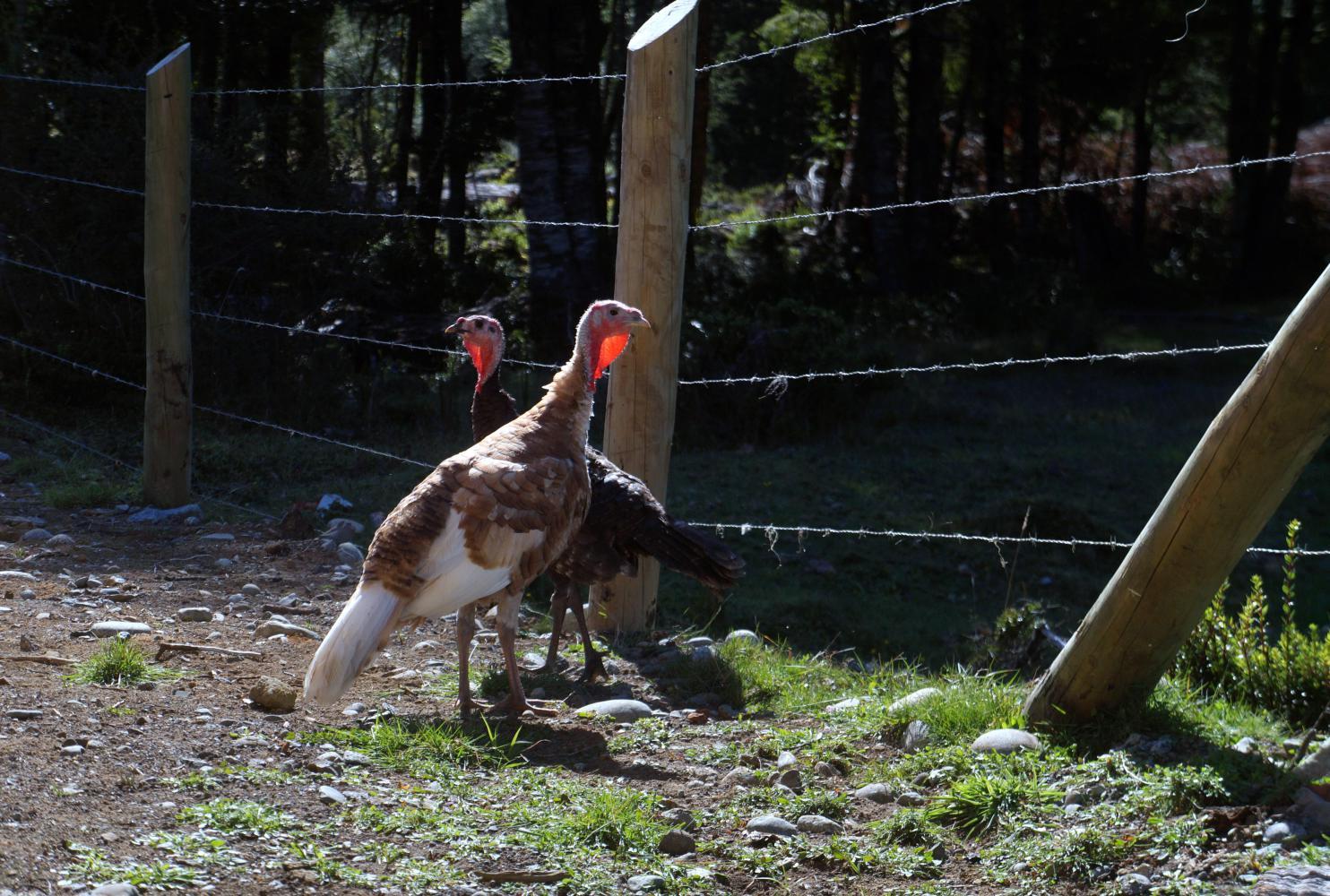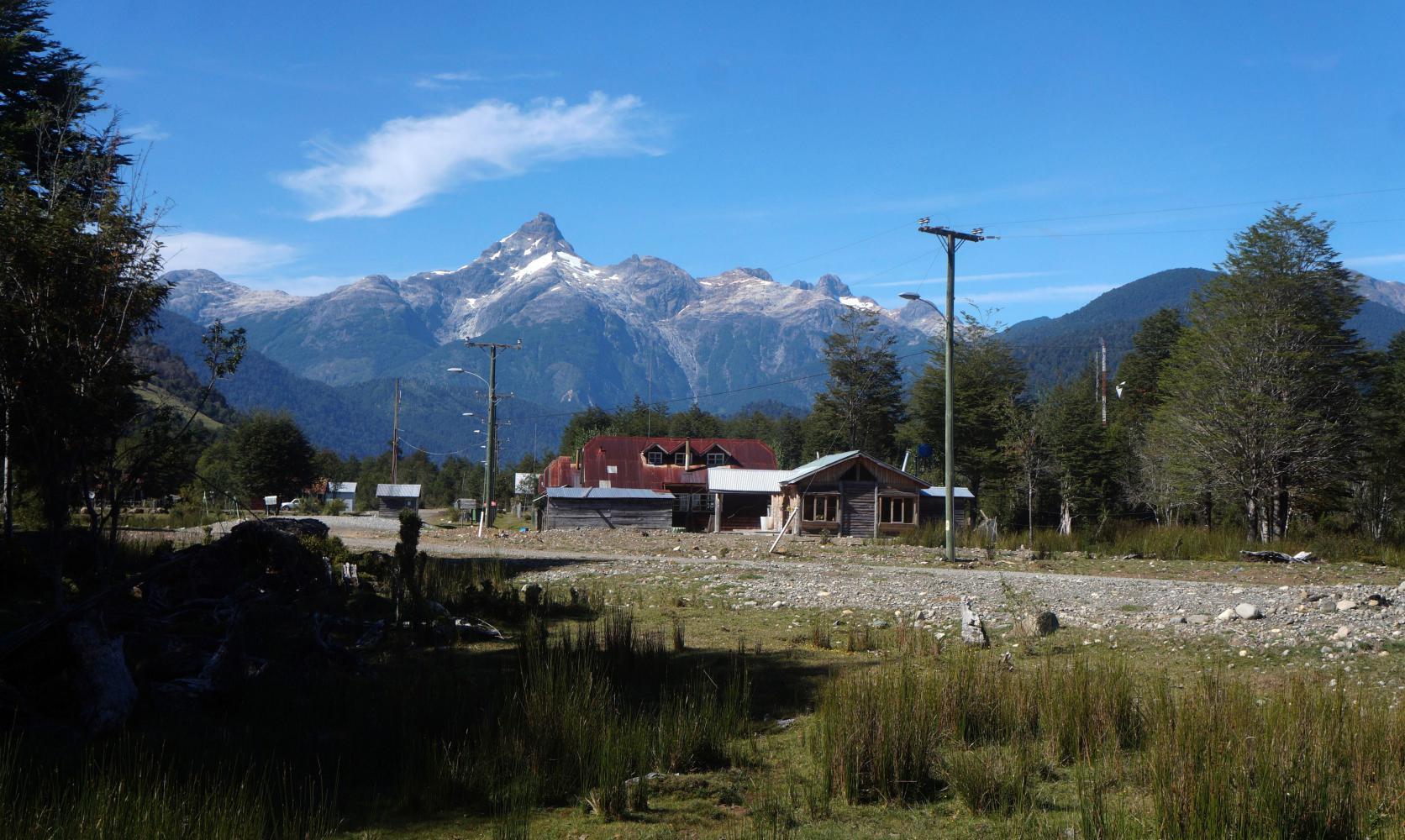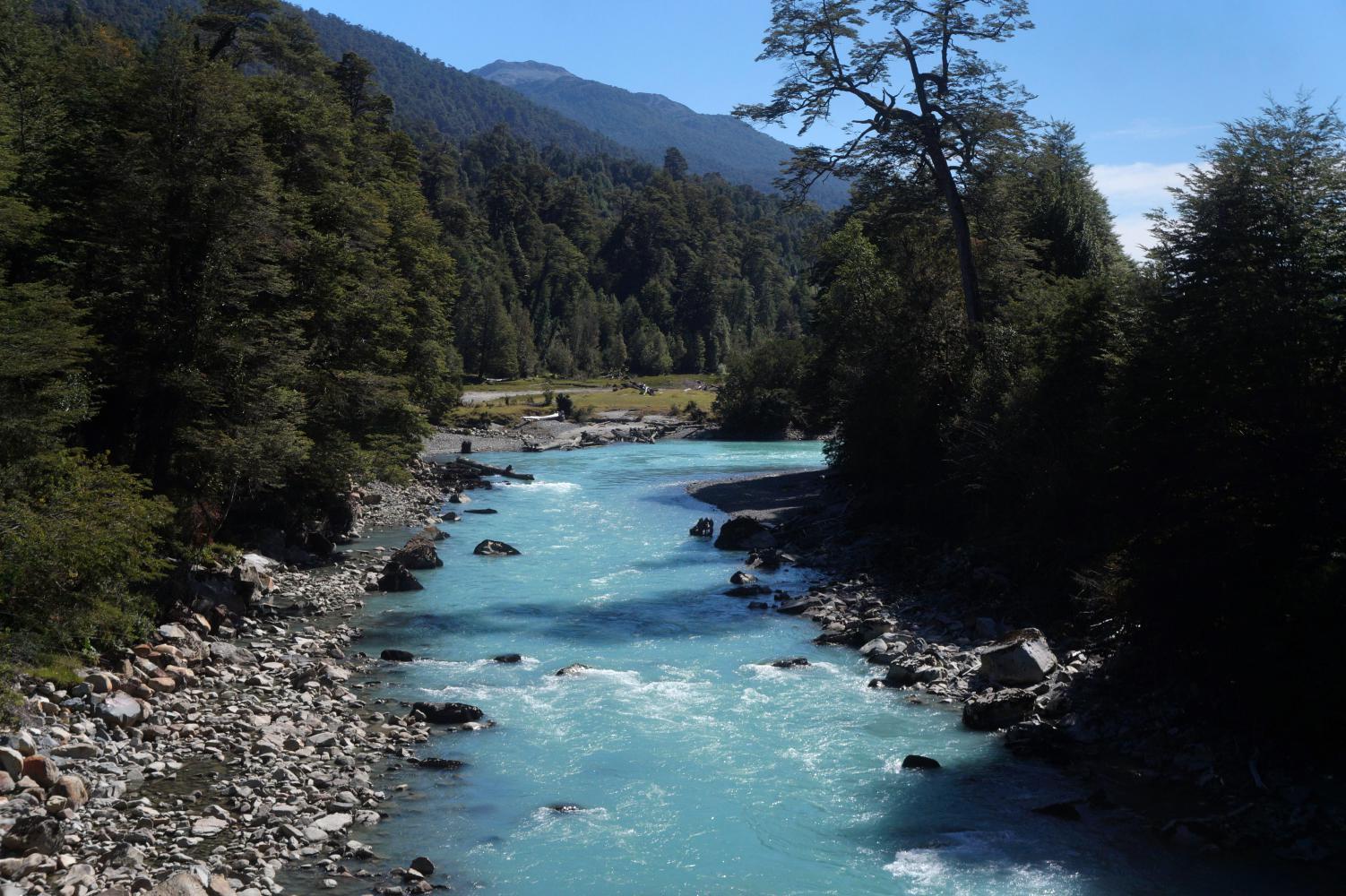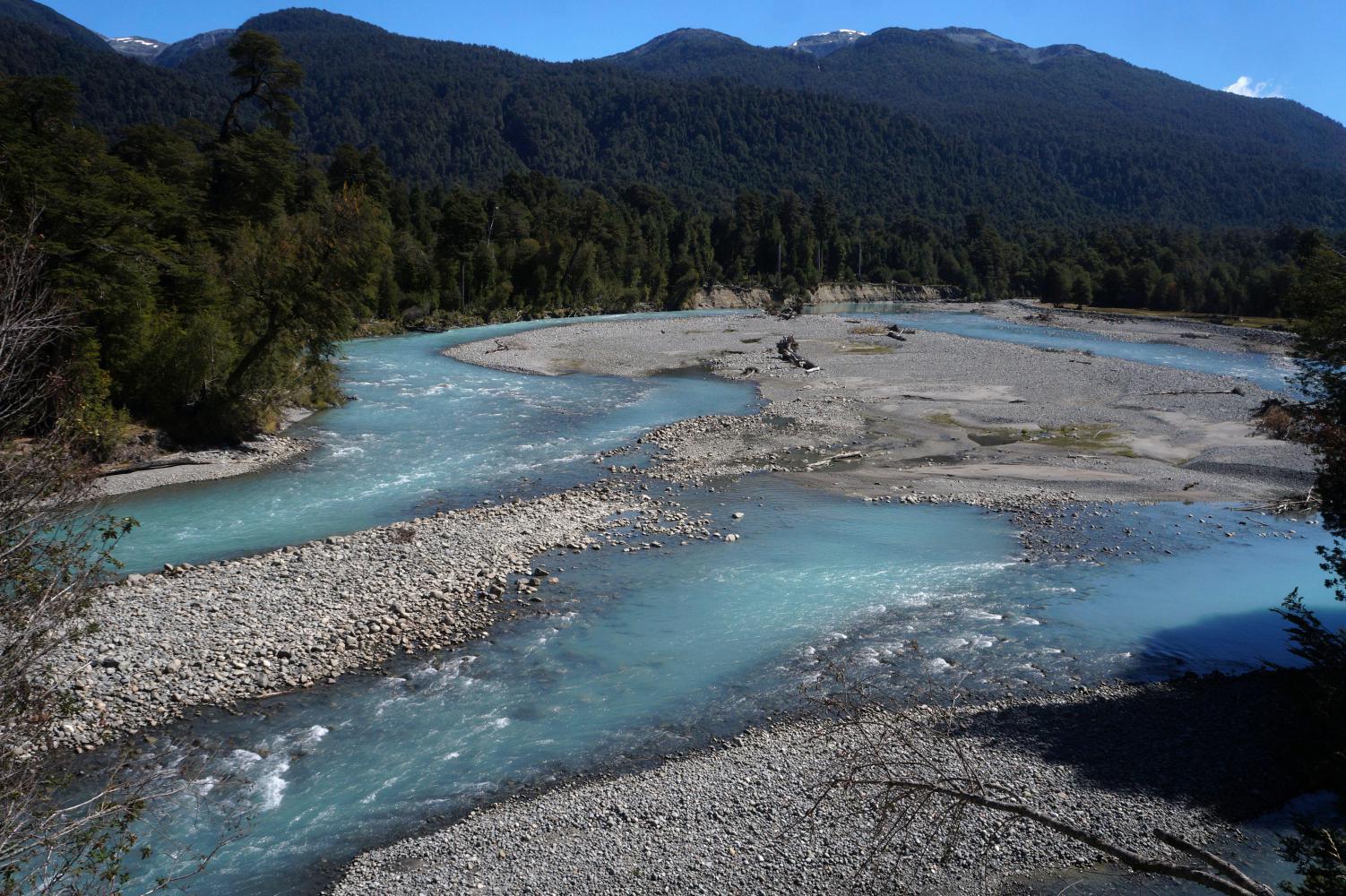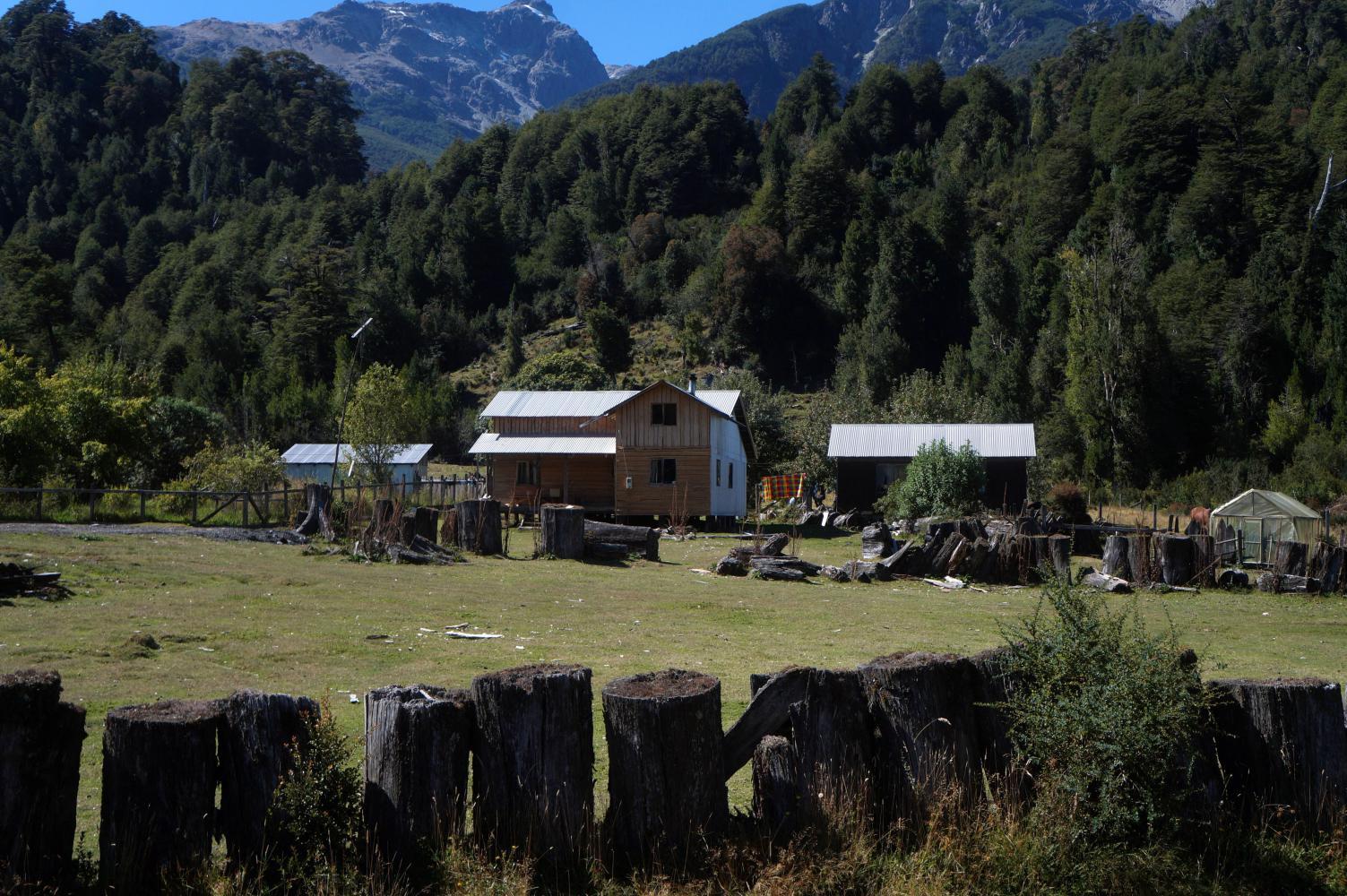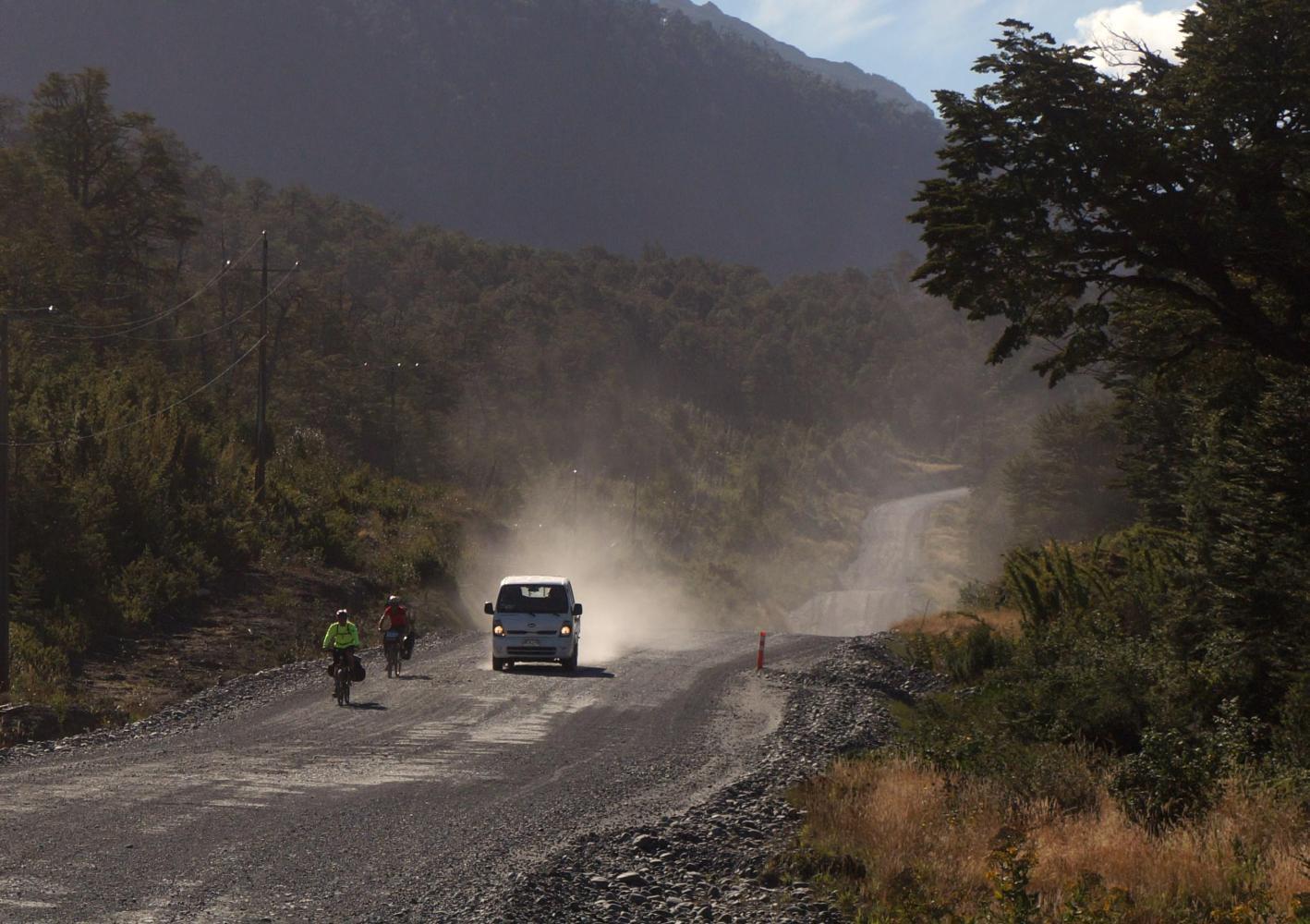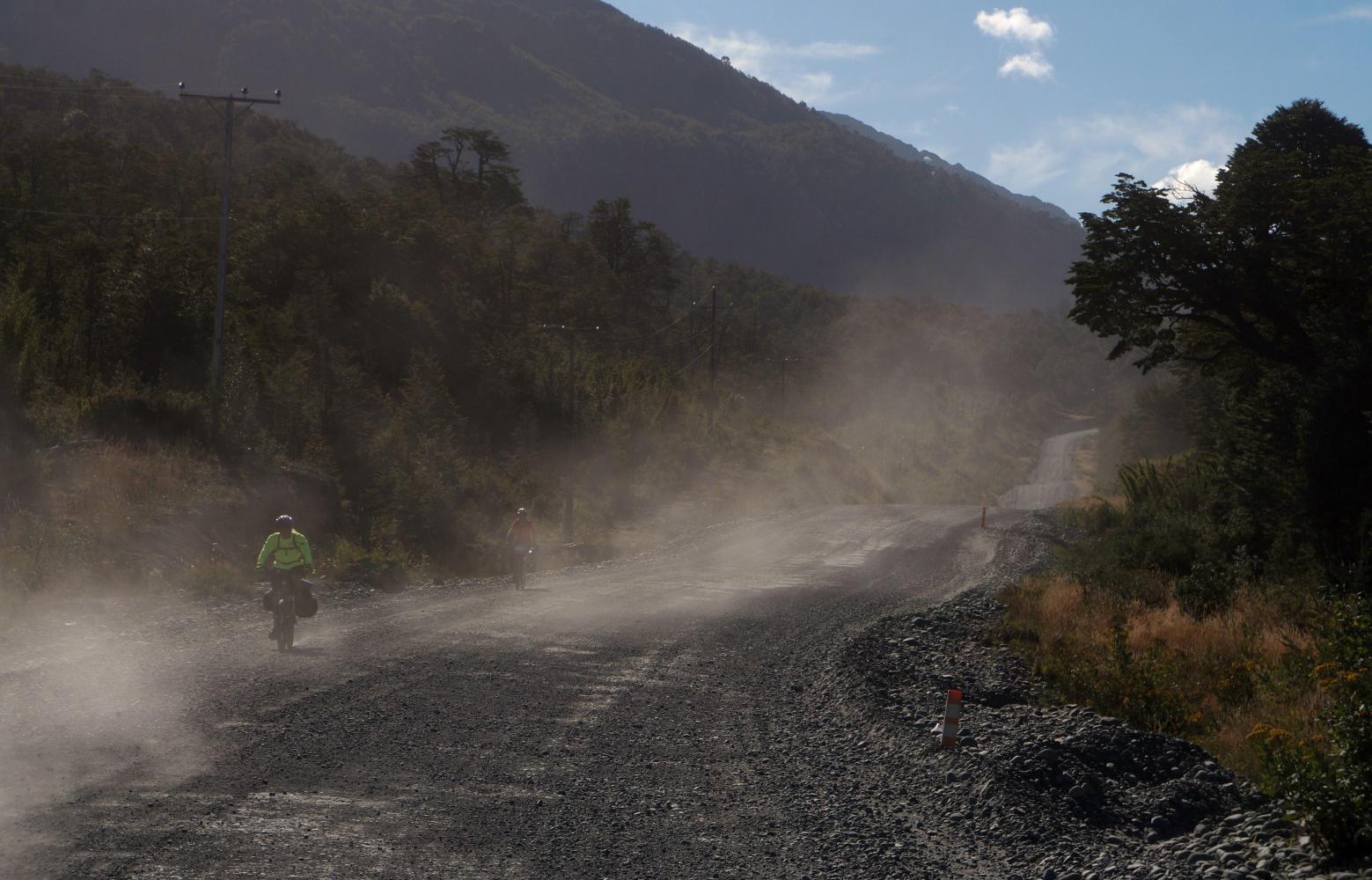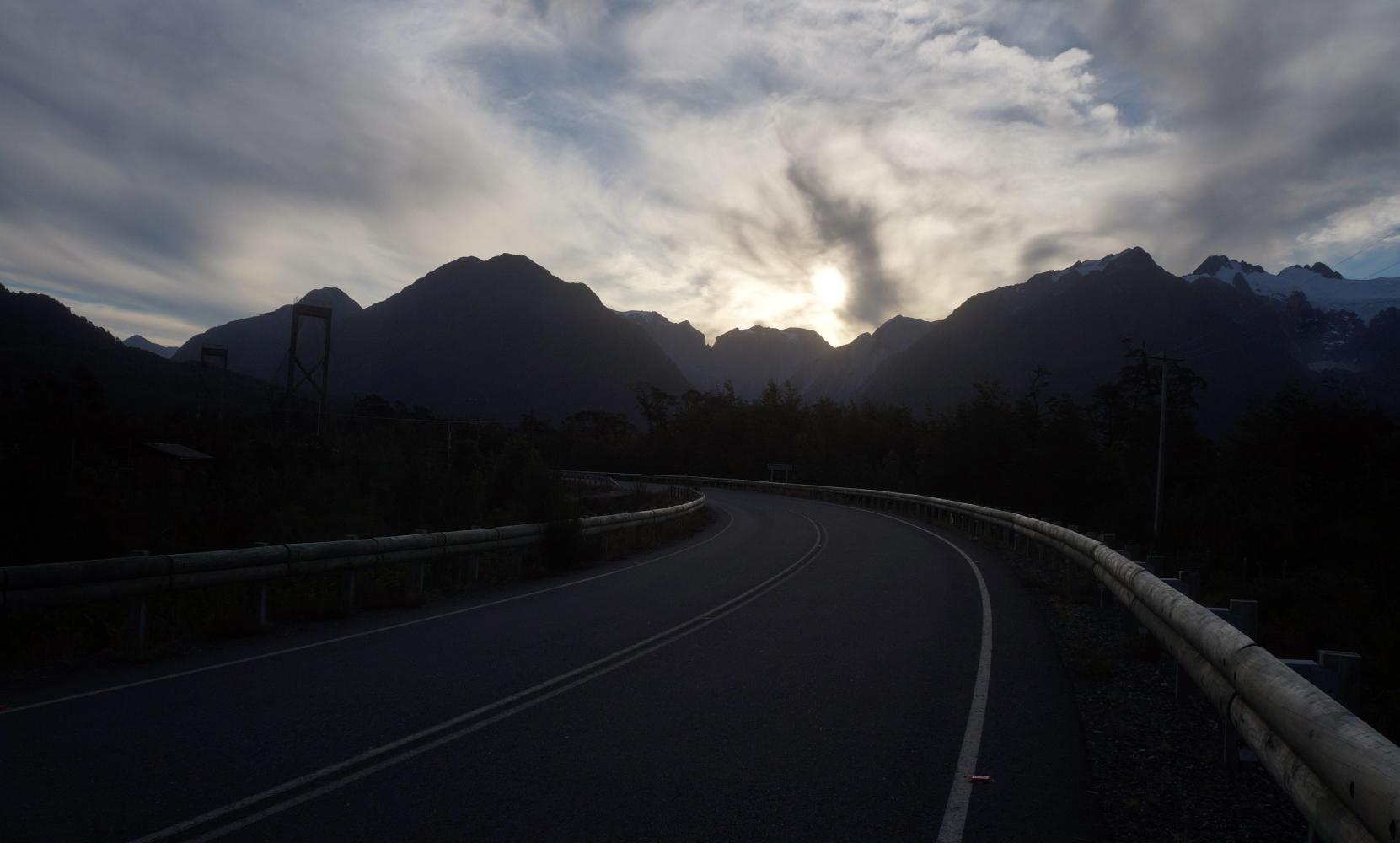March 13, 2016
A Sunday In Hell: Bridge over Rio Palena to Rio Yelcho.
I once heard the famous spring classic cycle race "Paris Roubaix", held yearly on an April Sunday in northern France, called "A Sunday In Hell" The route from the start north of Paris, follows farm roads and the riders bump along over cobblestones en-route to Roubaix on the Belgium border. A wet day means filthy spray from the wheels covering the riders, whereas a find day preceded by a dry spring, the wheels stir up a cloud of dust. Well to get to the point, we were many riders on the road today, it was a tough day, maybe not as tough as a cycle race because we ride at our own pace, nonetheless hard going; and, we were caked in dust. https://en.wikipedia.org/wiki/Paris-Roubaix
I awake in my Rio Palena riverbank campsite by a tree which must be at least four-to-five hundred years old judging by the thickness of it's trunk. Its actually two tree-trunks conjoined in one, having started out as two saplings too close to each other to grow separately to maturity. It appears that the two saplings filled out as they grew, eventually joining together, growing on as the one tree.
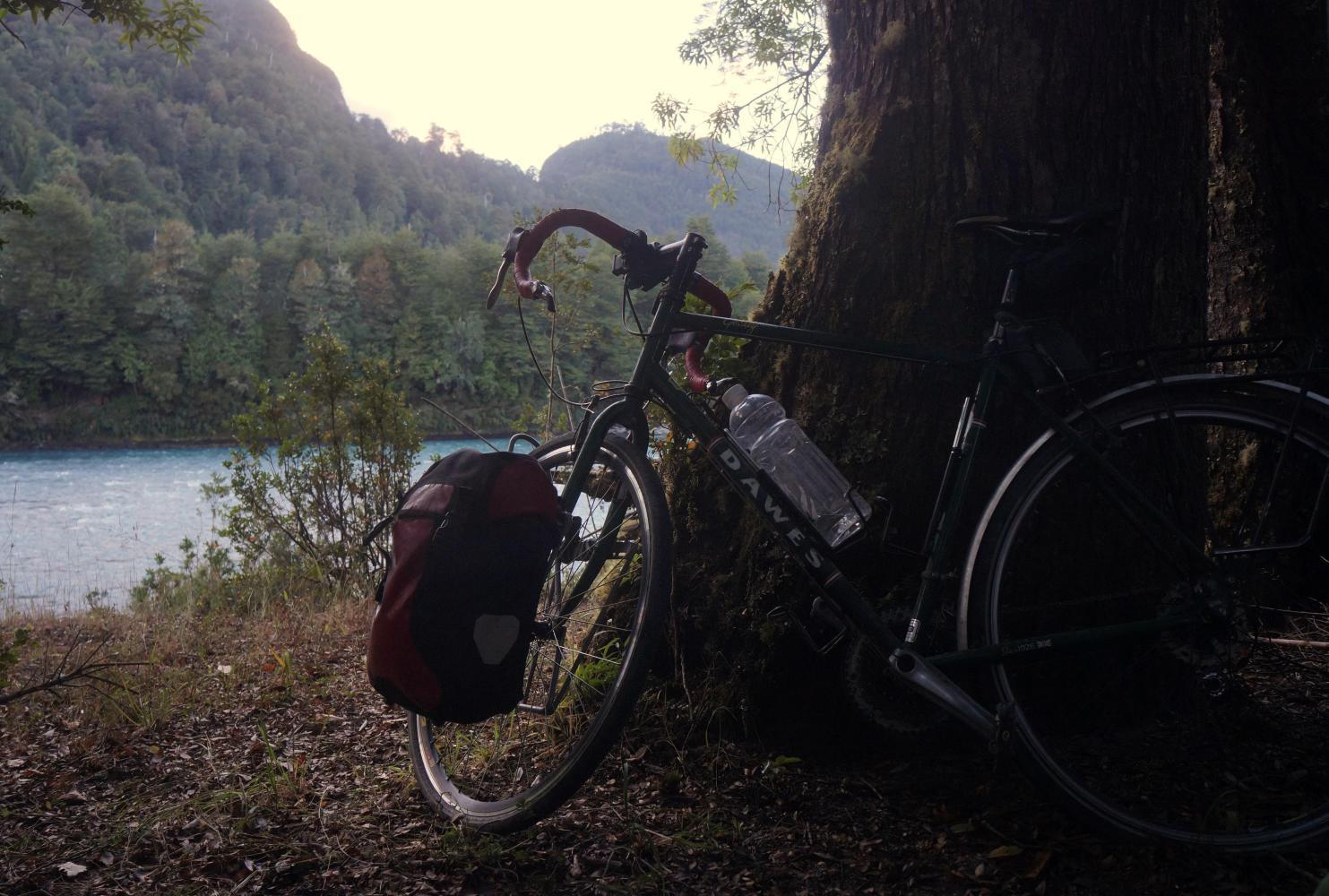
| Heart | 0 | Comment | 0 | Link |
I dread getting on the road this morning although another clear blue sky and sunny day lays ahead. Its the description the Canadian cyclist gave. He said, the road gets worse, with sections he had to get off and push the bike because of road works where they've laid a loose surface. Perhaps though, it was his perception of the road and things aren't quite as bad. He could be overplaying the difficulty.
At the moment, the rear wheel is tripping sideways every metre or so on irregular golf ball sized stones. In parts there's a vehicle track clear of stones, but its mainly on the wrong side of the road and so when a cars come from the other direction, which is fairly often, I've to ride off over the chaos of loose stones to my own side of the road.
I cover nine kilometres the first hour and so, I calculate it'll be four o'clock when I reach the next place, Santa Lucia. And it may take to nightfall to reach the bridge over Rio Yelcho, where I think the riverbank should make a good campsite.
Another hour riding barely faster than walking pace passes. Then, just down a descend to a bridge, I see the beginning: the road continuing as smooth tarmac the other side of the bridge. The Canadian's perception of things certainly are different to mine.
My speed instantly more than doubles as the road undulates along above a big glacier river, its gravel bars and channels taking up most of the valley bottom fringed by forest which fill most of the rest of the valley, except plots cleared for farms.
I make it to Santa Lucia timely for lunchtime at half one. I could do with finding a shop open. It being Sunday though I don't hold out too much hope. The first shop I come to is closed. I knock on the door, but there's no sign of life about the place as I stare longingly in through the window at bars of chocolate. Then outside the next shop along the main through road, the two English cyclists I met yesterday in Puyuhuapi sit. The most talkative says "Yes, its closed, too." with typical London irony. The third cyclist of their number, there are three loaded touring bikes, whom they were waiting for yesterday, is missing this time too, away in the next street back looking for an open shop. A few minutes pass and he returns carrying a cardboard box full of groceries, having found the owner of a shop who kindly opened up.
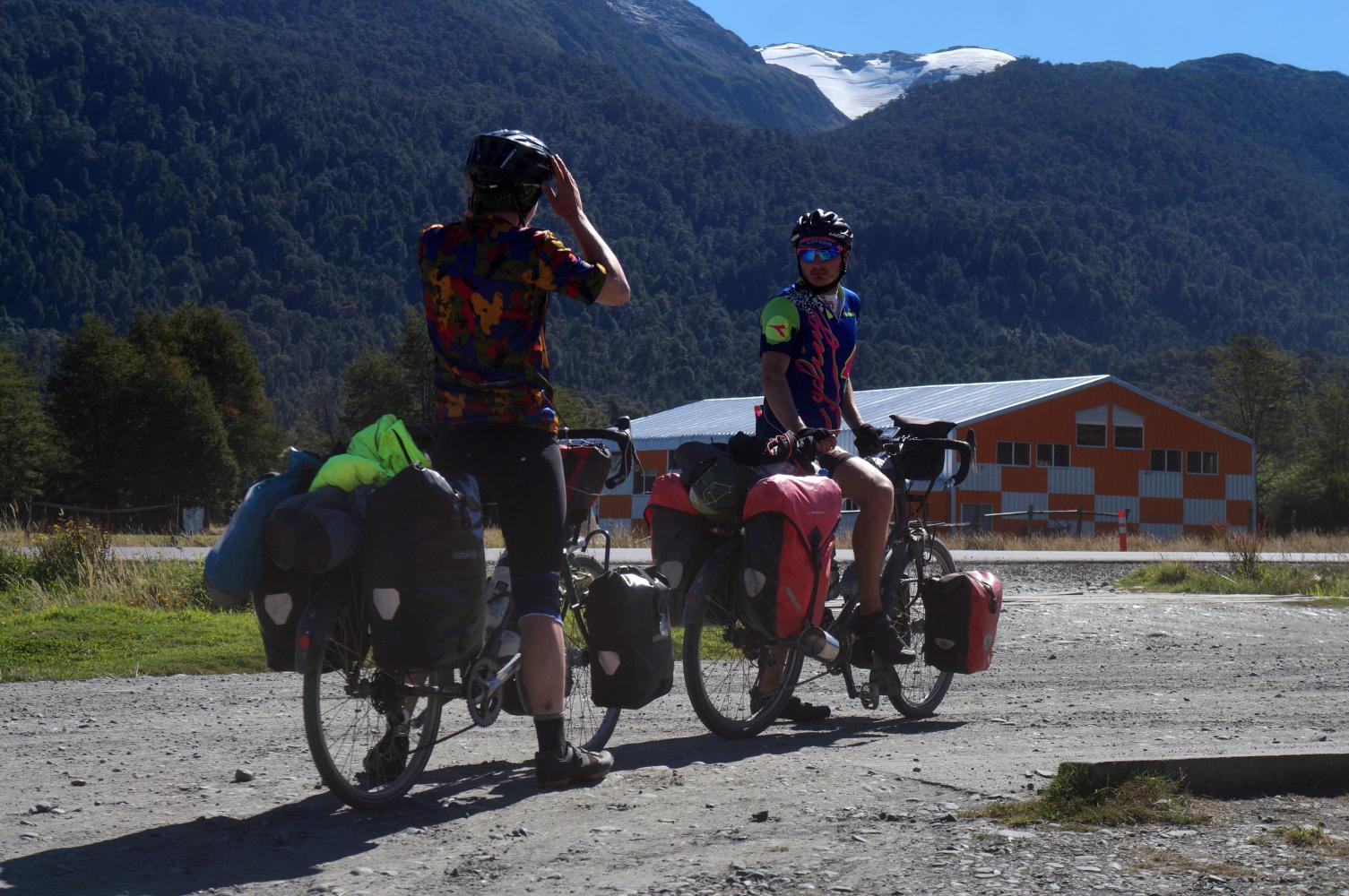
| Heart | 0 | Comment | 0 | Link |
At that moment a cycle touring couple turn up. They are familiar and then I recognise them. They are the French couple I met the Monday I rode from Torres del Paine to Puerto Natales, called Vincent and Millau, who instantly recognise me.
We generally remark on how find the weather has been this last couple of weeks. A pleasant change from the cold of Santa Cruz (province) and Terra del Fuego. Not hot, just pleasantly warm; like a good English Summer, the talkative English cyclist says. Vincent says, this weather will last until Thursday, according to a French climatologist friend living here; and adds, its the hairdryer effect. Warm air blowing in off the Pacific. The heat is fast melting the glaciers and in a few years, there will be no glaciers and the rivers will run dry.
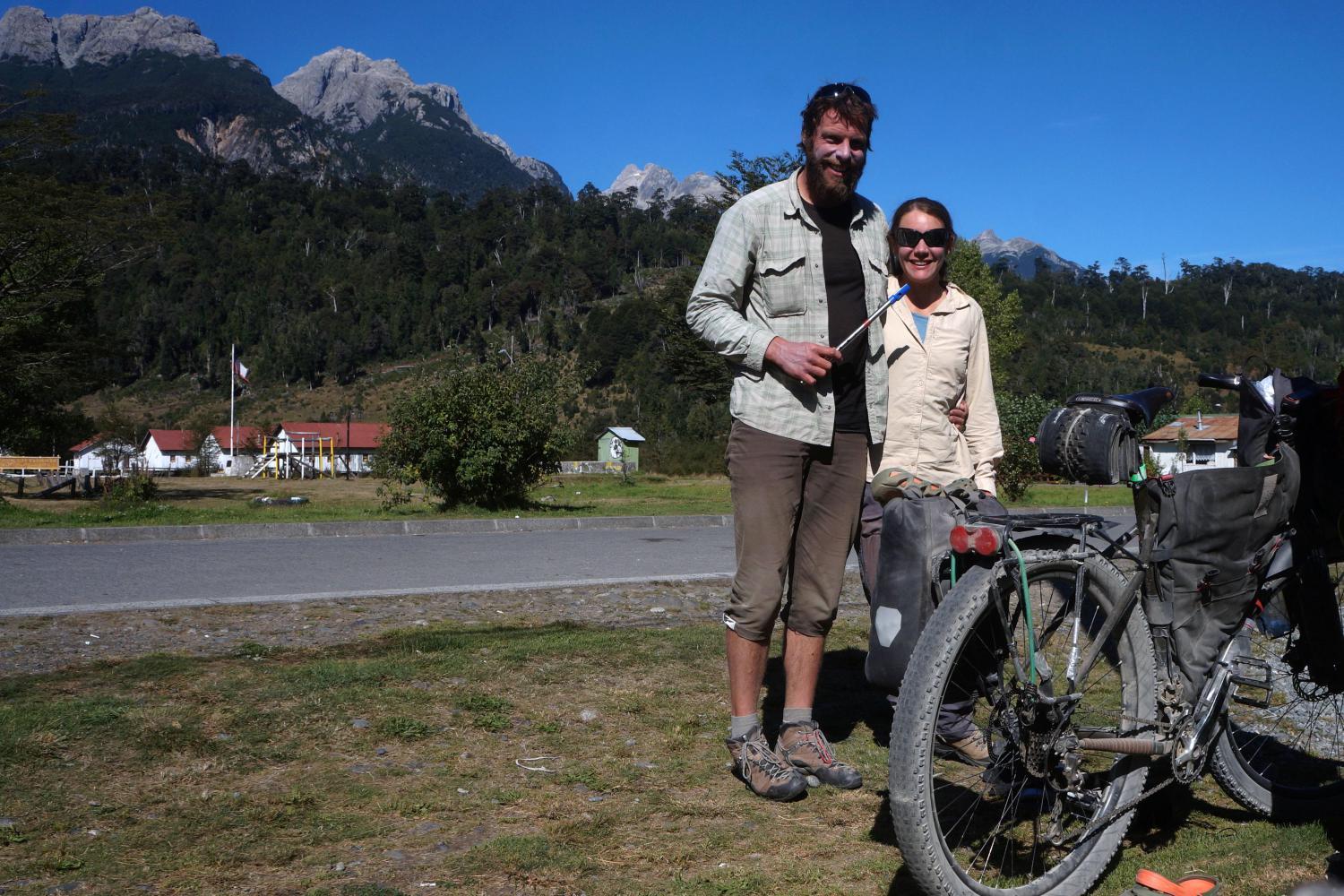
| Heart | 0 | Comment | 0 | Link |
Other cyclists arrive. Ricardo from Trevelin just across the border in Argentina, mind I met him the day I was in the Los Alerces nation park. And just after him a couple traveling with him, also from Argentina. We all except the English go round the corner to the open shop, which although calling itself a "Mini Mercado" (mini shop or kiosk) has a good selection of everything.
While eating at a picnic table outside the shop, I remark to Vincent, its an interesting place the Carretera Austral, first opened up in the 1930s with deforestation and establishment of frontier villages like this one. "And we are lucky to see it as it is now" he replies, and stresses "because in the future it'll be desert. When the rivers no longer have water running in them, because of the glaciers having disappeared."
Setting off in ones and twos around four o'clock, me the last to go except for Millau and Vincent. The road on the northern edge of the village reverts to unpaved (ripio) just at the start of a long steep climb further. The surface though is fairly good, being clear of the usual scattered stones. On the steep incline I first pass Recardo, who is off pushing up the hill, then the Argentine girl, her man having ridden on ahead. The road goes up and up with no end in sight. Worse is all the road builder's tipper trucks passing every five minutes in a cloud of dust. I meet a cycle touring Spanish father and son, the older man stops and talk, tells me it is soon all downhill and the paved road start again the other side of Rio Yelcho, which he says is 25km.
It is a ridiculously steep descent, close to one-in-four gradient in places, with scattered stones, my brakes squealing all the way down. Then Vincent catches me, his big balloon tyres make short work on the downhill as he flies by like a downhill mountain biker, pausing a second for a sociable greeting and saying, he needs to catch the Argentine cyclist to tell him to wait for his girlfriend. Then Millau bounces pass on her balloon tyre bike, another daredevil downhiller. Both are good pedallers and bike handlers, judging by how well they control their bikes. I watch Millau disappear in a cloud of dust while passing round a tipper truck on the way up. Later however I catch them up on a short steep climb.
We catch the Argentine cyclist at the entrance to a fancy campground. He has already been in to check the price and tells us, a camping space is 20,000 pesos (£20). Yes, the picture on the roadside sign is a gaucho type wearing a nice hat, obviously a place for fancy people that come to Patagonia and play at being gauchos. Nevertheless, he wants us to share, as he says a place is plenty big. That would still mean 3300 something each, his girlfriend and Ricardo when they arrive making six.
Both me and the French couple don't want to pay anything to camp when free camping places exist. I mention the bridge over Rio Yelcho. Vincent looks at his map and says it is seven kilometres more.
We set off again, leaving the Argentine cyclist to wait for his girlfriend. There's a section of finished tarmac ahead, then it ends abruptly and the way on is loose uncompressed fine grade, upon which on entering, my bike sinks and suddenly stops and its a struggle to change into a low gear to move on, meanwhile the French balloon tyres couple are gone ahead.
There is as expected a track down from the bridge approach to the riverbank, with abundant short turf for tents and a couple of rings of stones with charred remains of fires of previous camping activity. Millau and Vincent who got here before me have their tent up and point out brambles by their tent place loaded with ripe blackberries, which once I've set up camp, I pick a bowl full, which will be a nice addition to my porridge in the morning.
Supper is pasta with wine. Tomorrow I have a short 44km to Chaiten, supposedly paved, where I plan on catching the Tuesday ferry to Chiloe, and continue north on paved route 5, the Pan Americana. Route 7 continues north to Puerto Montt, much of it unpaved. I really don't like this rough ripio. It knocks the life out of the bike. The English cyclists on wider tyres and heavier bikes than mine think the same. I wonder how they're getting on, having left early after lunch, intending to reach Chaiten today, to catch a ferry to Puerto Montt tomorrow.
Today's ride: 79 km (49 miles)
Total: 6,816 km (4,233 miles)
| Rate this entry's writing | Heart | 0 |
| Comment on this entry | Comment | 0 |
